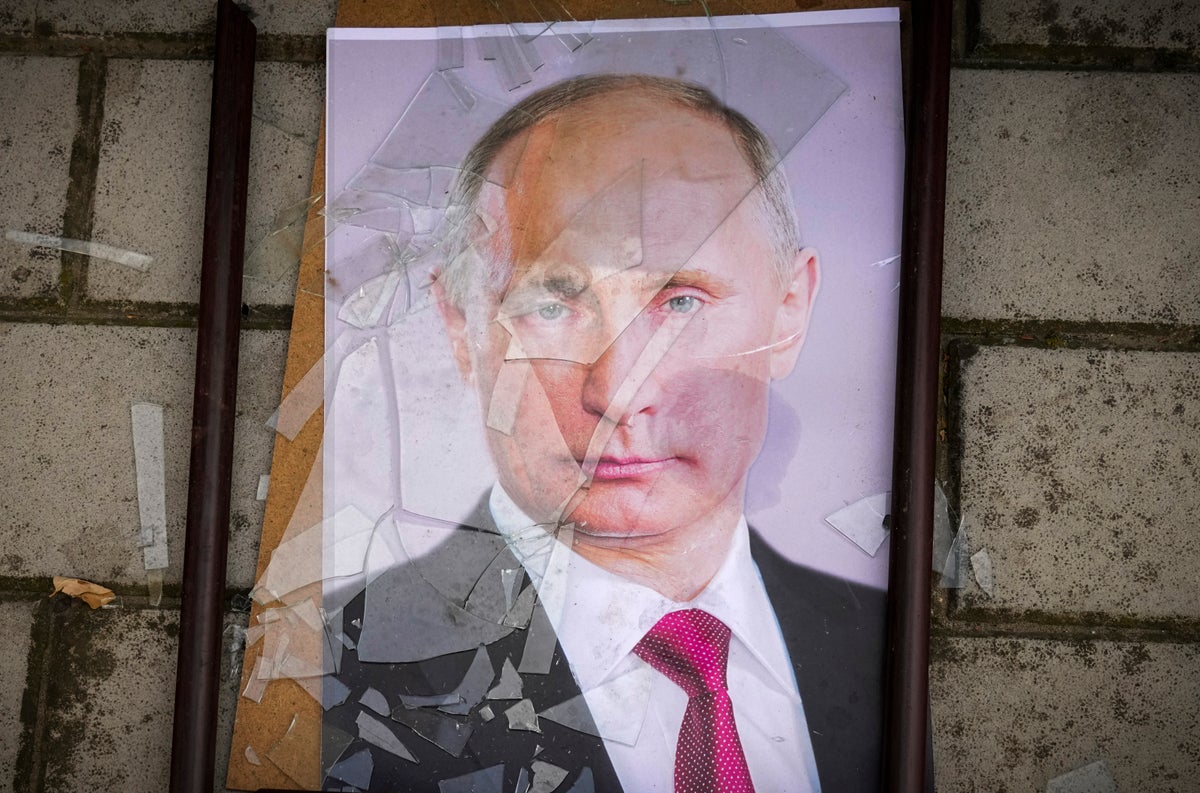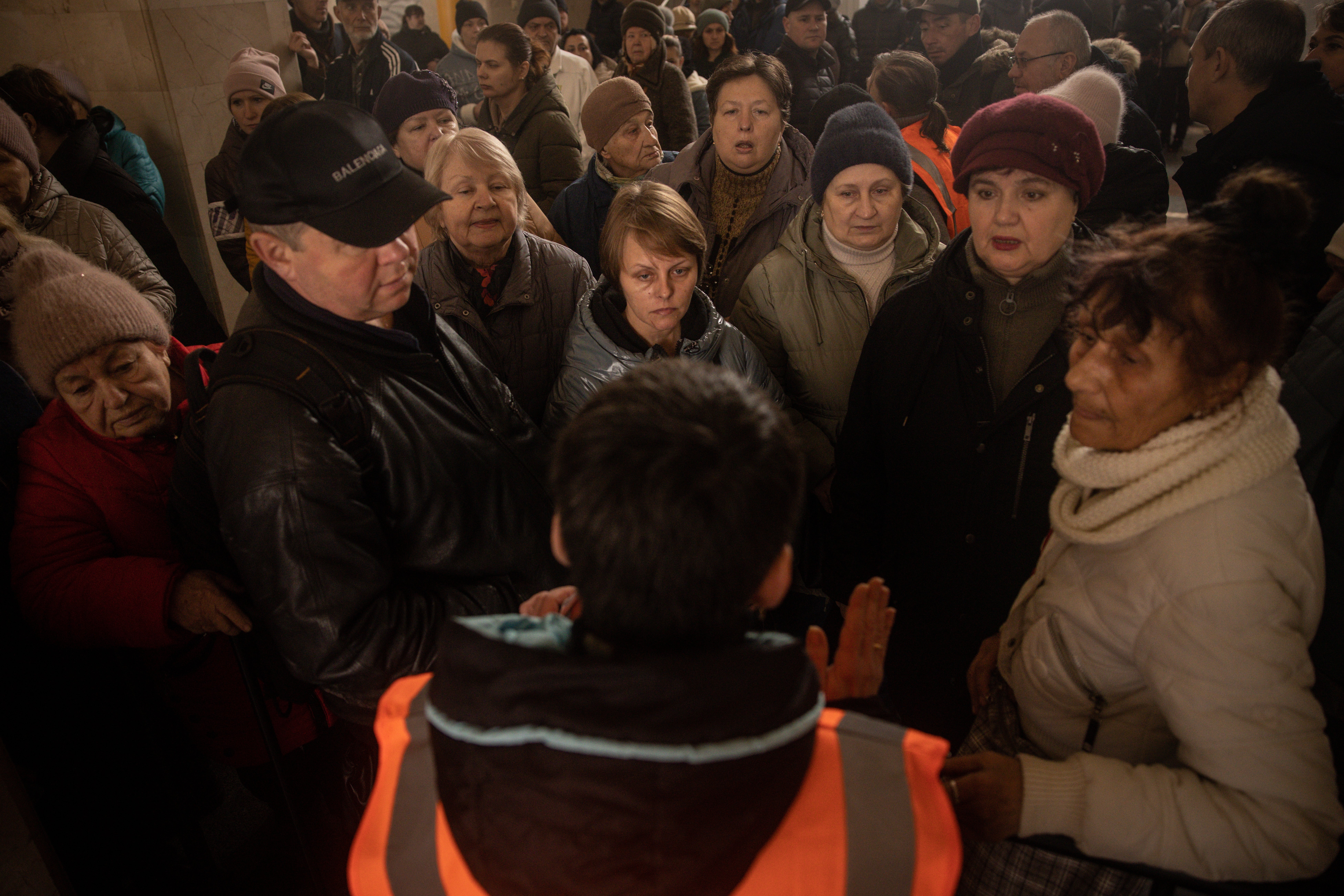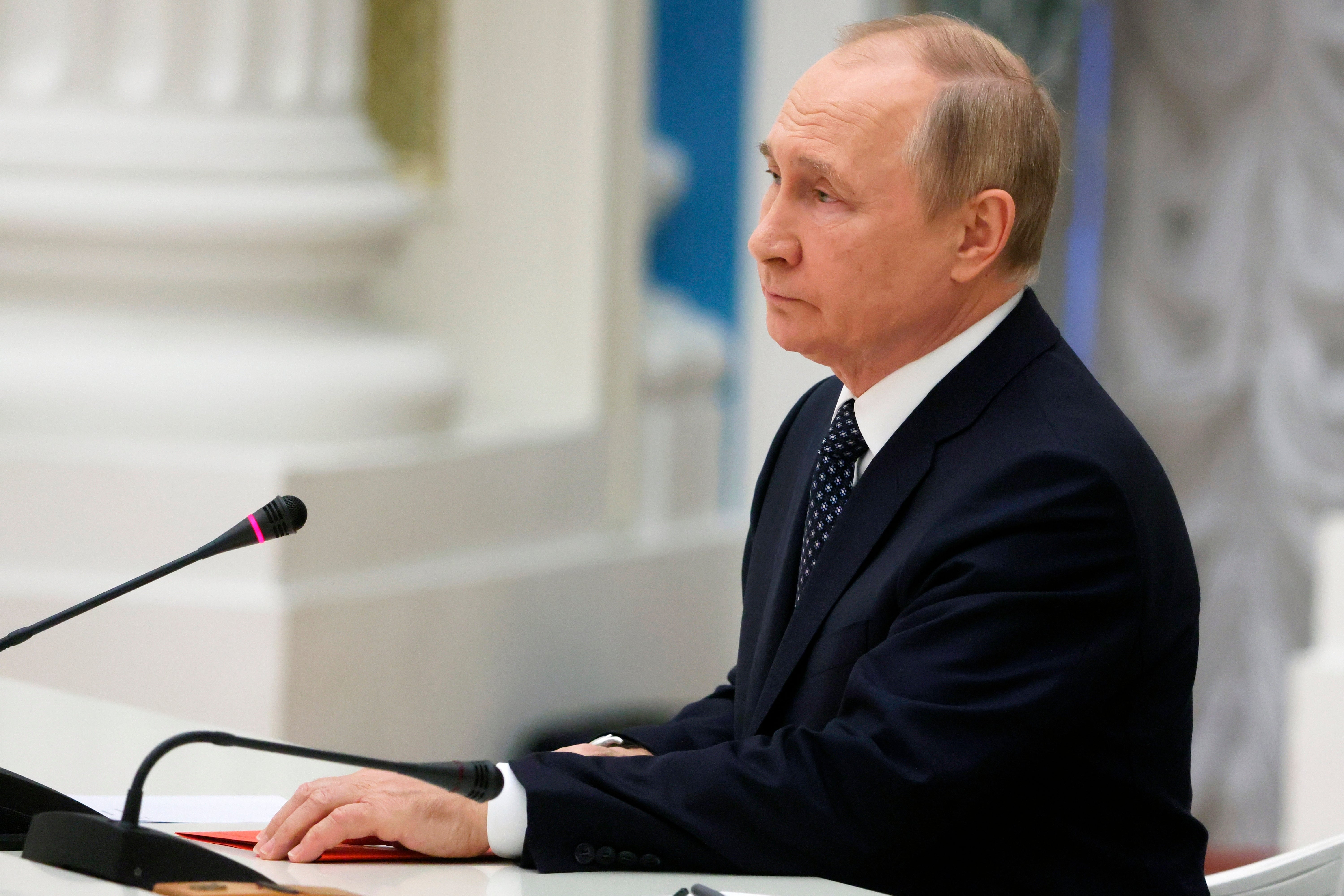
Russian president Vladimir Putin is “living in fear for his life” as his army retreats, a senior Ukrainian military aide said.
Earlier this month, Russia announced it was withdrawing from the Kherson region, marking one of the most embarrassing defeats for Mr Putin and a potential turning point in the war which has reached its ninth month.
The loss of Kherson, the only regional capital Russia had captured in the conflict, dealt a heavy blow to plans to establish a land corridor to Crimea and secure a water supply to the Russian-controlled peninsula.
“[Putin] is very afraid because there is no forgiveness in Russia for tsars who lose wars,” Oleksiy Arestovich, an adviser to the Ukrainian president’s chief of staff, told The Times.
“He is fighting for his life now. If he loses the war, at least in the minds of the Russians, it means the end. The end of him as a political figure. And possibly in the physical sense.”
Ukraine’s victory over Kherson came after a series of humiliating retreats by Kremlin forces in the Kharkiv and Donbas regions.
“This has forced even people who are very loyal to Putin to doubt that they can win this war,” Mr Arestovich said.
He said Kherson’s liberation had triggered renewed Russian strikes on the country’s infrastructure and plans for a fresh offensive from Belarus, a Russian ally to the north of Ukraine. Mr Putin’s troops advanced on Kyiv from Belarus during the early stages of the war, but were forced to retreat after stiff resistance.
Ukrainian authorities have begun evacuating civilians from recently liberated sections of the Kherson and Mykolaiv regions, fearing a lack of heat, power and water due to Russian shelling will make living conditions too difficult this winter.

The World Health Organisation (WHO) says millions of people in Ukraine will face “life-threatening” conditions over the coming months, with residents of the southern regions urged to move to safer areas in central and western parts of the country.
Mr Arestovich reiterated Ukraine’s aim to recapture all of its land seized by Russia, including Crimea, the Black Sea peninsula that was annexed by the Kremlin in 2014.
Meanwhile, Mr Putin this week touted Russia’s Arctic power at a flag-raising ceremony and dock launch for two nuclear-powered icebreakers that will ensure year-round navigation in the Western Arctic.
Presiding via video link from the Kremlin at the launch ceremony in the former imperial capital of St Petersburg in northern Russia, Mr Putin said such icebreakers were of strategic importance for the country.
“Both icebreakers were laid down as part of a large serial project and are part of our large-scale, systematic work to re-equip and replenish the domestic icebreaker fleet, to strengthen Russia’s status as a great Arctic power,” Mr Putin said.

The Arctic is taking on greater strategic significance due to the climate crisis, as a shrinking ice cap opens up new sea lanes. Vast oil and gas resources lie in Russia’s Arctic regions, including a liquefied natural gas plant on the Yamal Peninsula.
Mr Putin smiled as the Yakutia nuclear icebreaker was launched into the water in the docks and stood as the Russian national anthem graced the raising of the Russian flag on the Ural icebreaker which will begin work in December.
The Russian president also announced plans to meet the mothers of reservists called up to fight in Ukraine.
The war has killed and wounded tens of thousands of soldiers on both sides, according to the United States, and the Russian invasion has triggered the biggest confrontation between Moscow and the West since the 1962 Cuban Missile crisis.
The meeting with soldiers’ mothers, first reported by the Vedomosti newspaper, was confirmed by Kremlin spokesman Dmitry Peskov. Russia celebrates Mother’s Day on 27 November.
“Indeed, such a meeting is planned, we can confirm,” Peskov told reporters when asked if Mr Putin was to hold a meeting with families of the mobilised.
“Such a meeting is in preparation.
“The president often holds such meetings, they are not all public. In any case, the president receives first-hand information about the real state of affairs.”







